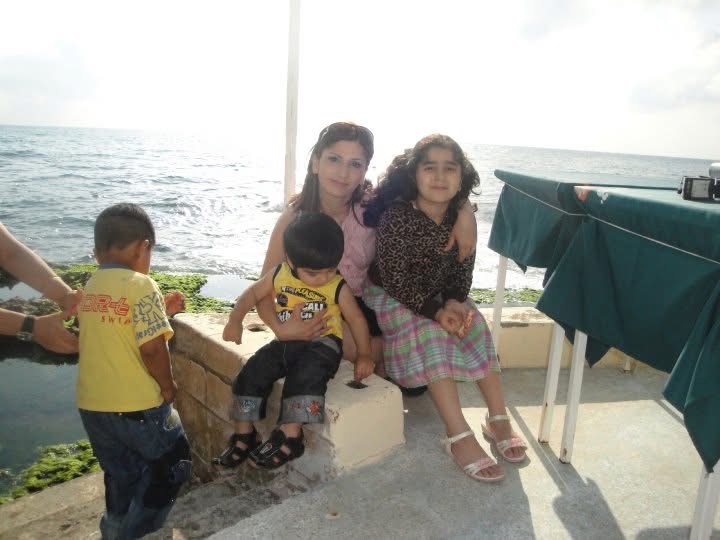{shortcode-ea6703e4c5aefd17690c47c6b672427bc3ce48b6}
On Dec. 8, my family and I heard my uncle’s voice on the phone for the first time in a year and a half.
It was the morning after the end of over half a century of brutal dictatorship in Syria. My uncle had been freed from the torture chambers of Syrian prisons and was back in my father’s childhood home. I heard his sisters ululating with joy in the background, reveling in what they thought to be a new, free Syria. Today, they remain on the Syrian coast, bearing witness to the murder of their friends and relatives in the name of sectarianism. In the name of the new, free Syria, which they once thought would include them.
This year marks 28 years since my father last walked the shores of the Mediterranean in his home city, Jableh. Twenty-eight years since he inhaled the jasmine petals that drifted in the streets of Damascus. Twenty-eight years since he saw his family, who now watch as their city is torn to ruins.
It has been 28 years since Baba last saw Syria, a country that never claimed him. It is a country that returns to me in flashes of memory, but does not anticipate my return.
Over the past few weeks, I have watched videos of civilians from my father’s hometown being humiliated — told to “bark,” called “Alawi pigs” — before being brutally tortured and killed. I watched an infamous video of a mother guarding the corpses of her two sons, berated by militant fighters who were supposedly defending the new, liberated Syria in the name of revenge and accountability.
I still have traces of memories from my last visit to Syria when I was five. I remember going to the beach with my cousins after road trips from Damascus to Jableh. I remember walking along the paths of Souq al-Hamidiyah with my uncle as I browsed the endless shops. But with each video grows the emotional toll of seeing this familiar land being torn to pieces on the basis of what many fear calling sectarian massacres. I watch as people who suffered under the same dictatorship are annihilated, nothing but “فلول النظام” — translated to English, “regime remnants.”
My father’s distance from Syria came as a result of his refusal to abide by compulsory military service under the Assad dynasty. Ba’athism — the very system of thought that subjected my Kurdish mother to a childhood of genocide under Saddam Hussein — claimed the prevailing distance between my father and his country. Ba’athism and all institutions controlled by the Assad family, including the slaughterhouses called Syrian prisons, are what permanently disabled my uncle after long months of nightmarish torture.
When the Assad regime fell in December, my family felt that they could take a breath of fresh air and celebrate with their fellow Syrians. I felt like I could forge a deeper connection to my roots without any shame, fear, or uncertainty. We felt that a free Syria was on the horizon, one that included all Syrians, regardless of ethnic or religious identity.
To our dismay, we were all wrong. As I scroll through social media posts celebrating these massacres as an assertion of a “free Syria,” I find myself wondering: Who is a true Syrian? For whom is this land a free Syria?
In December, my thumb traced photos of my mother and father in Syria as they separately basked in its vast highlands and its serene shores. Though they wouldn’t meet until years later, in Chicago, they were connected through their love for a land that remained steadfast in the face of endless violence — a land which I have yet to embrace. It is a land that feels forever out of my reach, one that seems to reject my ethnic and religious roots.
I long to see Syria, but it doesn’t see me.
Now, I watch as the massacres of Alawis on the Syrian coast are justified under the guise of combating Assad loyalists; as headline after headline diminishes the lived experiences of people like my uncle, whose life will never be the same after a year and a half of mental and physical abuse in prison. I watch as my own people disregard the very communities of my region who first rose up in 2011 and led protests chanting for a united and free Syria — who are now deemed no different from a violent dictator. I watch as my uncle is deemed guilty of the violence the regime inflicted upon his body.
With every passing day, two halves of myself crumble beneath headlines which perpetually dehumanize my people, who thought the end of their region’s designation as Assad’s stronghold would foster freedom.
My father has yet to return to his country in nearly three decades because of the structures of violence — whether at the hands of the Assad family or interim President Ahmed al-Sharaa — that deem him unworthy of Syrianness. That deem people like me unworthy of Syrianness.
December marked a period of immense hope for myself and my family. We dreamt of return, freedom, and solidarity. Now in April, the weaponization of religion and the facilitation of sectarian violence leave us wondering not only if we will ever return, but if our family will find safety. Our Syrian family.
Three months ago, we raised our heads up high as free Syrians. Now, those who expect to be known as our liberators force us to lower them.
—Staff writer Dalal M. Hassane can be reached at dalal.hassane@thecrimson.com.


